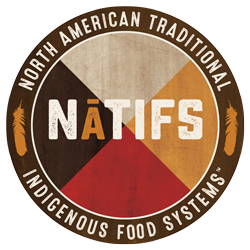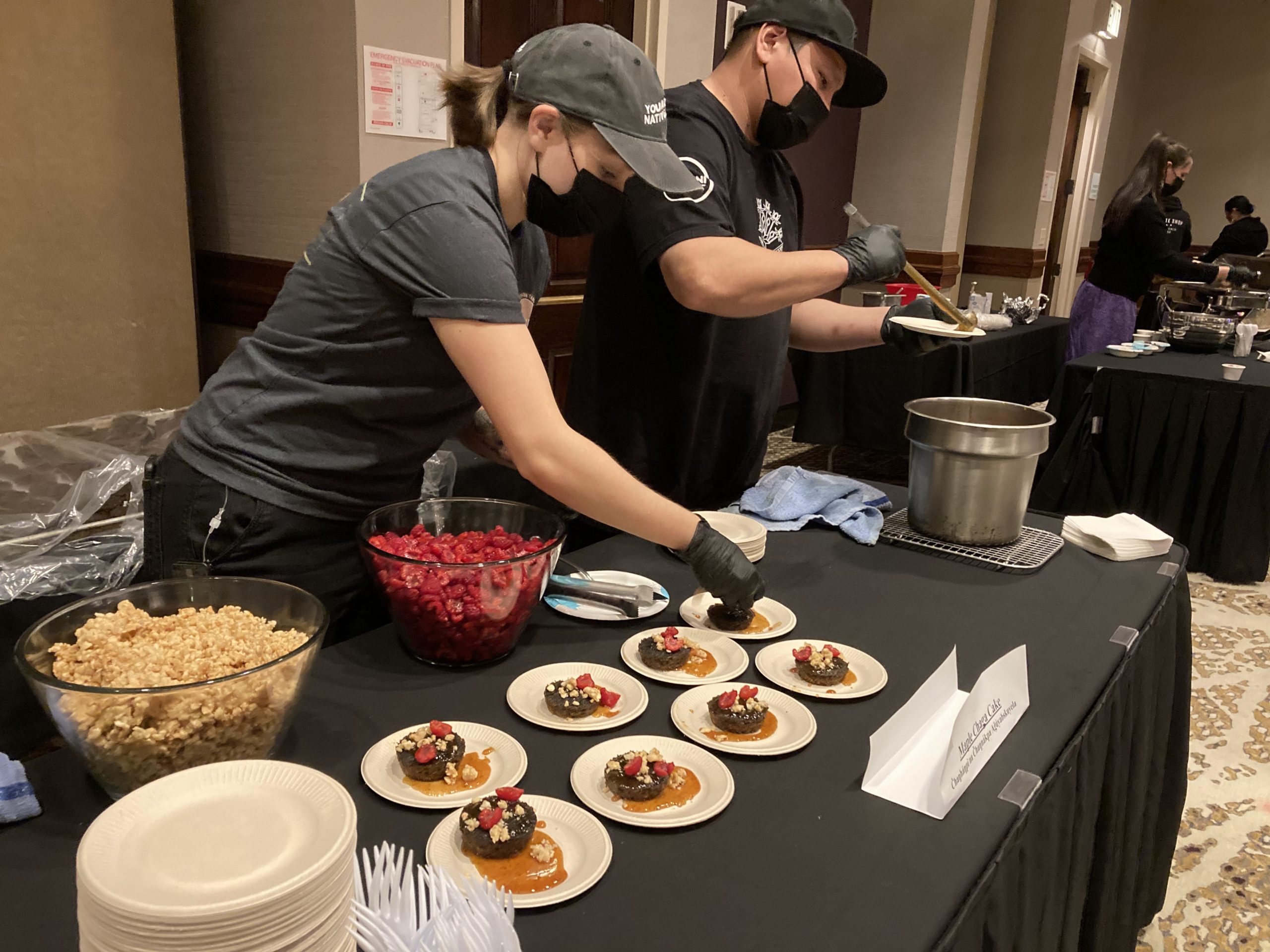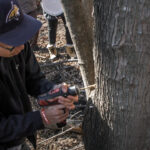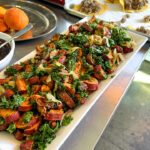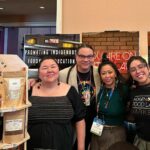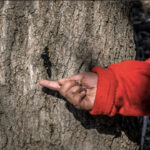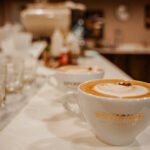Members from the NĀTIFS team went to the Lakota Food Summit in Rapid City from February 14th to the 17th. They had a wonderful time connecting with others about a love of food sovereignty!
Our cooks arrived at the small Rapid City airport Monday evening, and after receiving rides with Sean and his friend, Charlene, to the hotel, they dropped their bags in their rooms and got right to work in the hotel’s kitchen. It was the largest kitchen Ash personally had ever worked in, dwarfing the IFL and Owamni kitchens by four or five times the size. Burt and Ash worked on baking off a few hundred mini maple chaga cakes and a pot of agave caramel made with wild rice/quinoa milk. They also pitched in with a few of the other visiting chefs’ and students’ projects, such as helping the visiting students with a massive tilt skillet of bison soup.
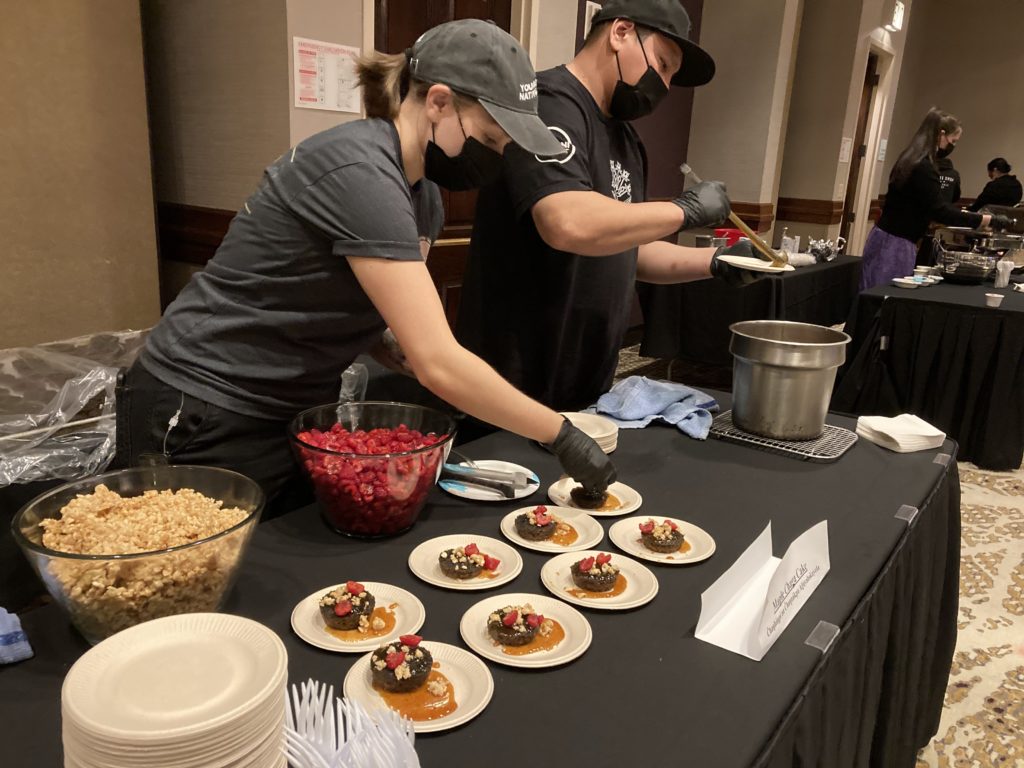
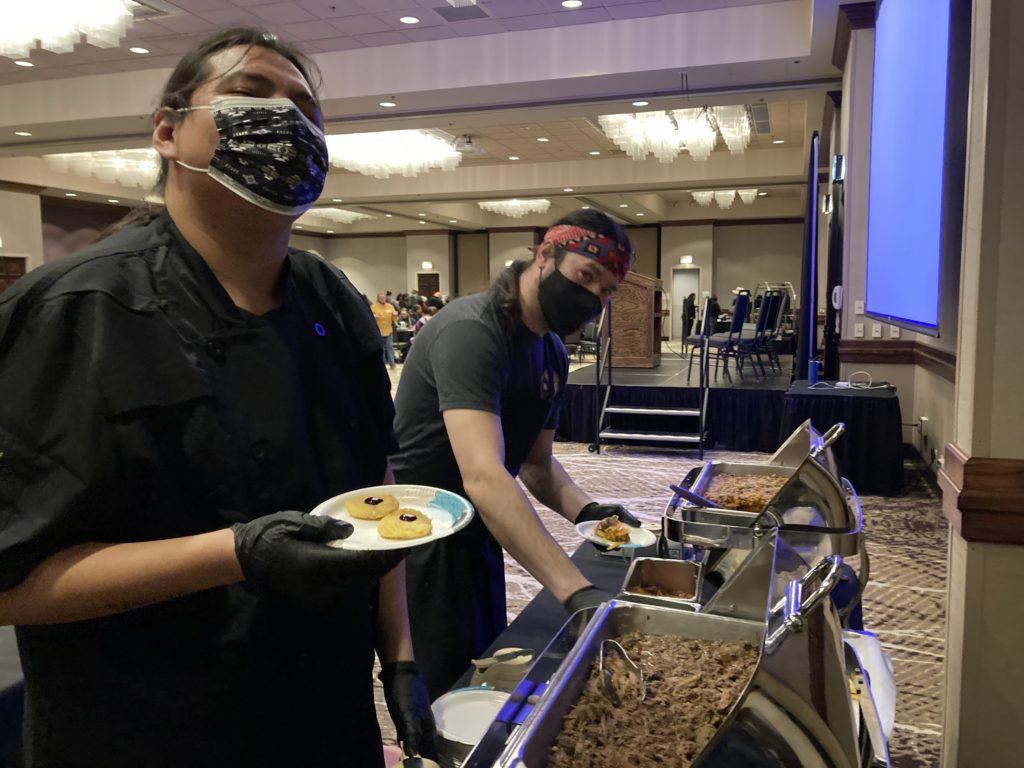
After a late night of cooking, they got up bright and early to finish preparing for the 2pm tasting. Donovan and Vern worked on making bison and three sisters open-faced tacos with chipotle wojapi and picked onions and squash. Donovan tackled the job of seasoning and braising the bison overnight, and Vern was able to assist some of the other young cooks and youths in the kitchen. Ash and Burt finished making the last of the cakes and reducing the caramel in addition to prepping raspberries and candied hazelnuts for garnish. After Sean gave his opening day presentation to kick off the summit, the NĀTIFS team heard some brief words from the other visiting chefs about their current projects and passion for working towards Indigenous food sovereignty. Each team had a booth set up to present their tasting dishes for the attendees, and the next hour went by in a flash as hungry guests scrambled to get a taste of all the preparations (tacos, tripe, soup, tarts, cakes, pulled bison, etc.).
Burt’s best moment from the conference was seeing how many people enjoyed his cakes and would come back for seconds, taking photos of their cakes as they went because of how beautiful they said they were. In addition to watching the hoop dancing, Donovan was very happy to get numerous compliments from guests that his taco was their favorite dish of the night, a point of pride for him considering this was his first time cooking for such an occasion.
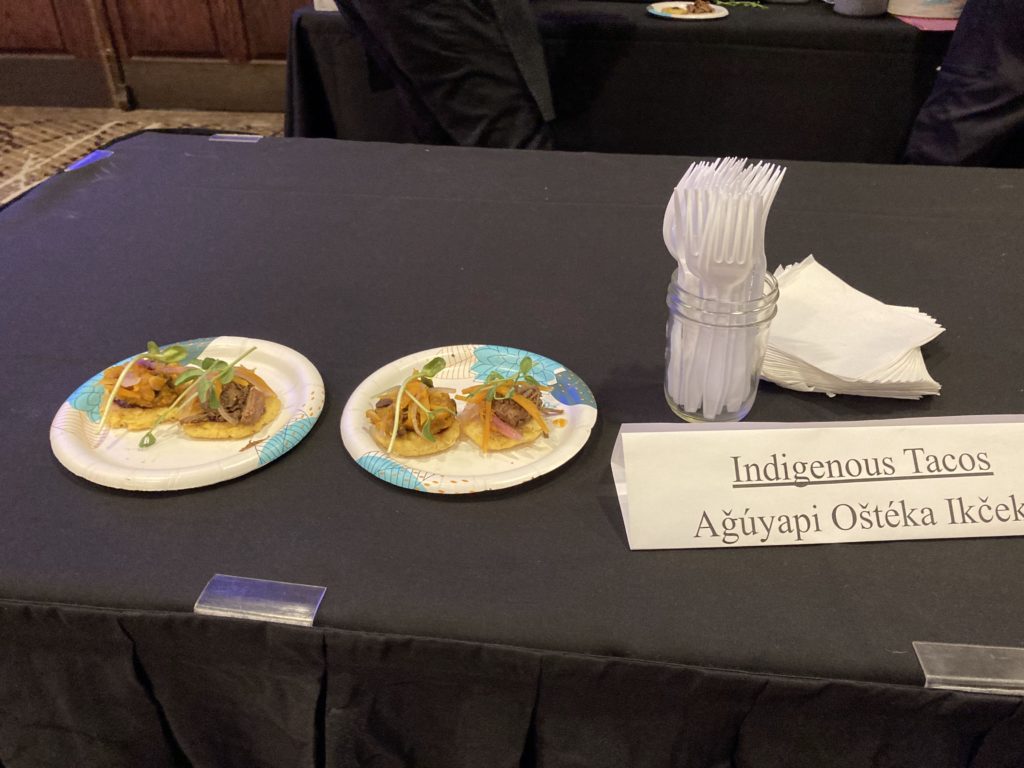
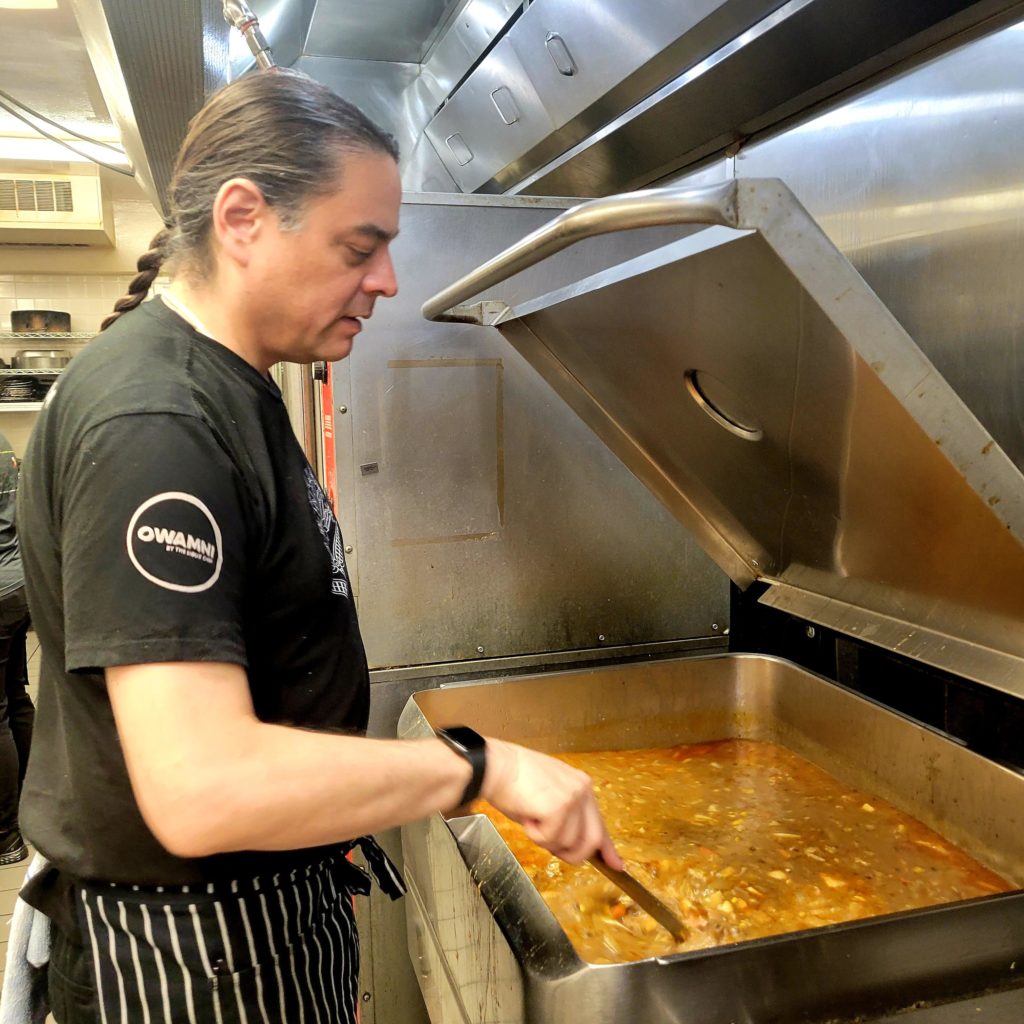
Given the philosophy “better to have too much than not enough,” the cooks had purposefully over-prepped and had enough food leftover to serve the guests lunch the following two days and provide the rest to a local shelter.
There was no cooking scheduled for the NĀTIFS team on the third day of the conference, so a few of the staff took turns giving out information and chatting with attendees at the NĀTIFS info booth. A high point of this for Vern was networking with the other organizations attending, for in addition to making new connections, he was encouraged that so many of their programs aligned with that of NĀTIFS, so the non-profit could easily work with all of them in some capacity if desired in the future. He also enjoyed getting to talk with so many youths about cooking, encouraging them to take our soup cookbooks home to try out. Ash enjoyed getting to meet so many folks from South Dakota who were either passionate to learn more about how to get involved in local food sovereignty projects or who were already working towards local food sovereignty in their own organizations. Several guests were immensely enthused by the prospect of having an Indigenous Food Lab of their own in Rapid City. Hannah, the team’s project coordinator, also enjoyed having the opportunity to meet more Indigenous chefs, such as Matthew Wilson and Kimberly Tilsen Braveheart, who shared their differing takes on Indigenous dishes. For her, it was exciting to hear about their specific plans to expand access to Native foods in their own communities, such as with a Rapid City restaurant and a revitalized food system vision for Rosebud Indian Reservation.
The team also had the chance to attend a few of the conference presentations and workshops on Wednesday. Vern thought that all of the workshops he attended, especially ones from the SDSU Center for Excellence in Bison Studies and a talk from Ella Robertson on Traditional Dakota food practices, were all interesting and relevant. Some focused on traditional food practices while others focused on agriculture, sustainability, leadership skills, project management, and community programming.
On the last day of our trip, the team had the chance to drive to Custer State Park for some nature walks and sightseeing before heading to the airport that evening. It was a nice break to be able to go out together as a group and, in the words of Vern, “Get into some nature.” With Hannah’s keen eye, they managed to spot bison, mule and whitetail deer, elk, prairie dogs, pronghorn antelope, and bighorn sheep! Ever the one to make the group laugh, Donovan’s favorite part was seeing “Uncle Sheep” and “Grandfather Buffalo!”
